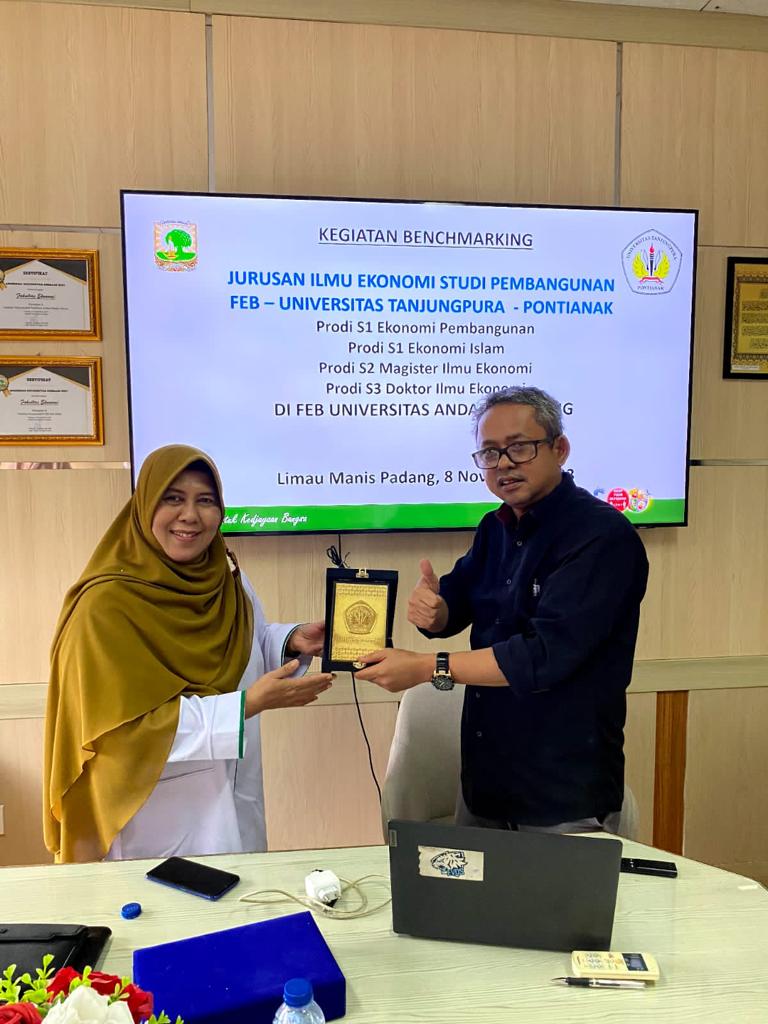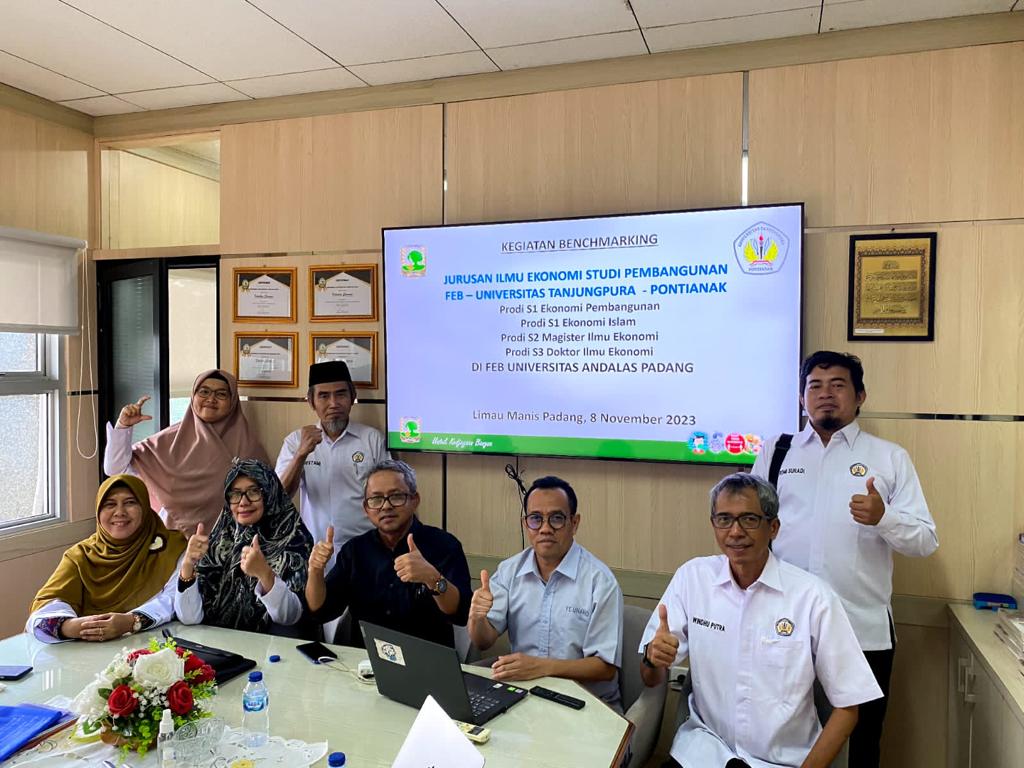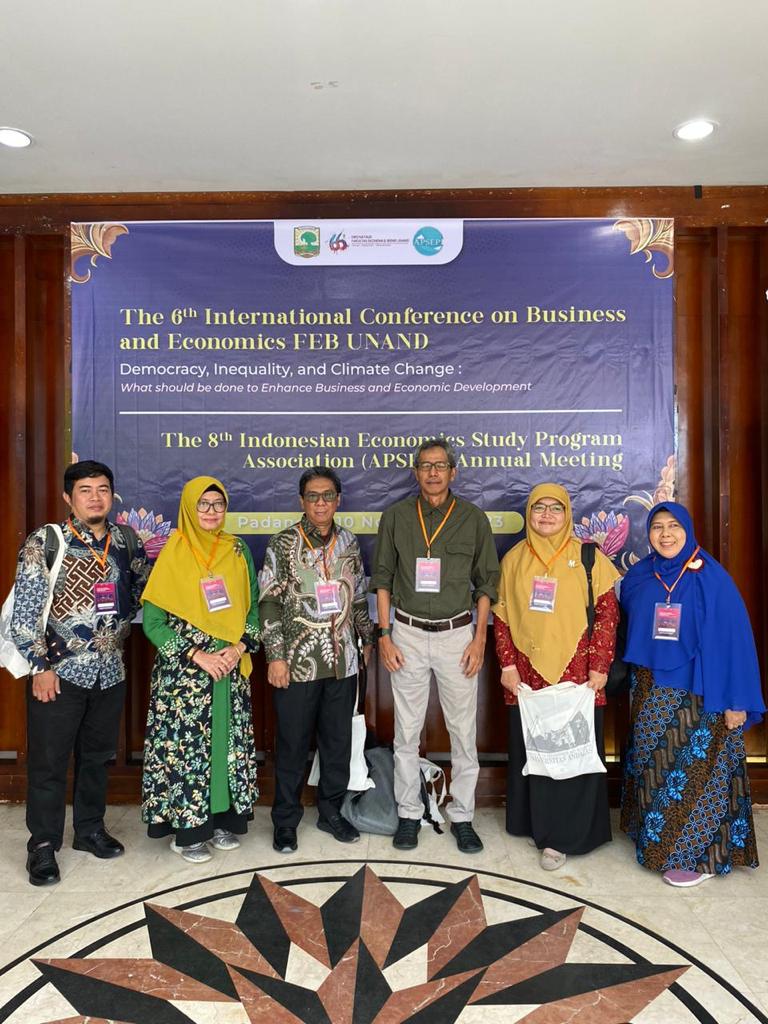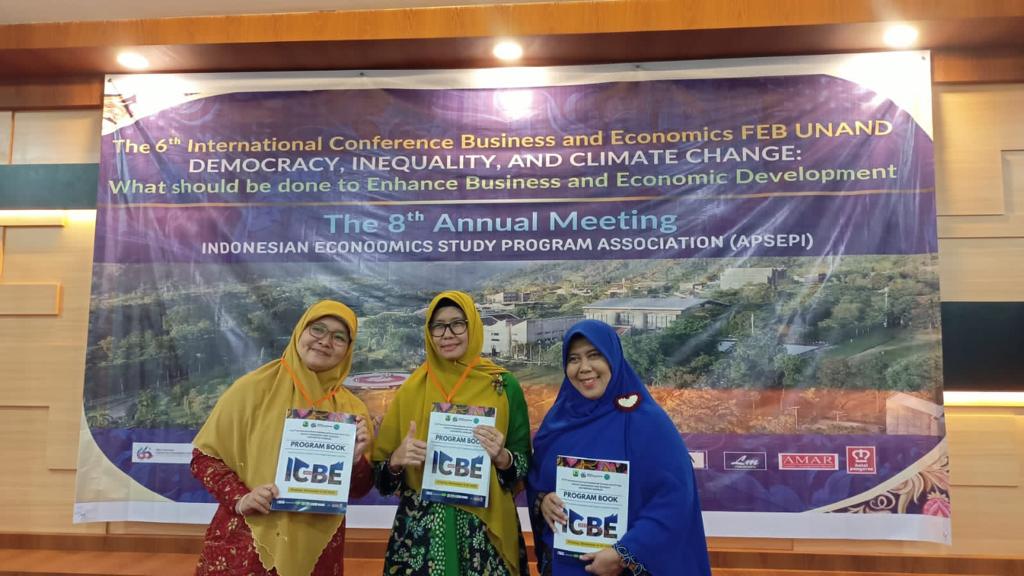



In order to improve the quality of the curriculum and support the development of the Department of Economics and Development Studies, Faculty of Economics and Business, Tanjungpura University (IESP FEB UNTAN), as well as to achieve the university’s Key Performance Indicators (KPI)—specifically increasing the number of lecturers who publish scientific works and strengthening partnerships with external institutions—several activities were carried out at Andalas University, Padang, from November 8–11, 2023.
First, representatives participated as presenters and attendees at The 6th International Conference on Business & Economics (ICBE) 2023, themed “Democracy, Inequality, and Climate Change: What Should Be Done to Enhance Business and Economic Development.”
Second, they took part in the 8th Annual Meeting of the Association of Indonesian Development Economics Study Programs (APSEPI).
Third, a benchmarking visit was conducted to the Faculty of Economics and Business, Andalas University, Padang.
The lecturers assigned to participate in these activities included Nurul Bariyah, SE, M.Si., Ph.D. (Head of the Department of Economics and Development Studies), Dr. Erni Panca Kurniasih, SE, M.Si. (Head of the Development Economics Study Program), Dr. Rosyadi, SE, M.Si. (Head of the Master’s Program in Economics), Dr. Bustami, SE, M.Si. (Secretary of the Master’s Program in Economics), Dr. Windhu Putra, SE, M.Si. (Head of the Doctoral Program in Economics), Metasari Kartika, SE, ME (Head of the IESP Laboratory), and Romi Suradi, SEI, ME (FEB UNTAN Quality Assurance Team – Deputy Head of IESP Department).
The curriculum commission meeting was organized into three working groups based on the core subjects of the Development Economics Study Program—Microeconomics, Macroeconomics, and Econometrics. Each group discussed the scope and depth of course materials for undergraduate, master’s, doctoral, and applied master’s programs. These defined material boundaries will serve as the main reference for developing curricula within each Development Economics study program, especially for the core courses.
